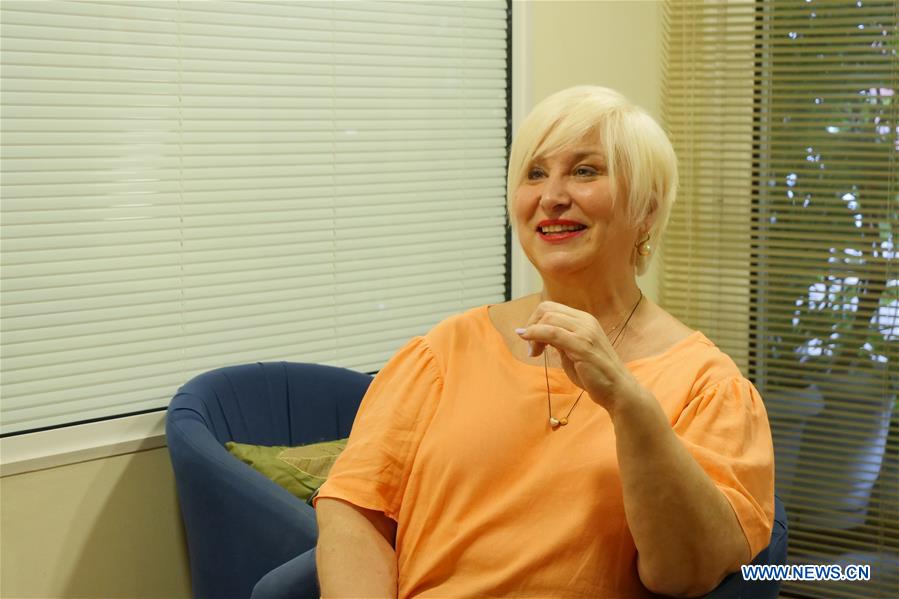
Greek physician Anastasia Karamouzi sits at her acupuncture clinic in Athens, Greece, Oct. 16, 2019. (Xinhua/Li Xiaopeng)
by Maria Spiliopoulou, Yu Shuaishuai, Li Xiaopeng
ATHENS, Nov. 8 (Xinhua) -- Growing up in China in the 1960s, studying medicine in Beijing, Greek physician Anastasia Karamouzi was among the first group of Greeks who have lived and studied in China that early.
Having been practicing traditional Chinese medicine (TCM) acupuncture for four decades, Karamouzi knows China, the Chinese people and Chinese culture well in depth.
As Greece is set to welcome the visit of Chinese President Xi Jinping in days, she talked to Xinhua about her life in China as well as how China's image has changed in recent years in Greece, and how she views the progress of bilateral cooperation.
A second generation Greek of the diaspora, Karamouzi was born in what is now the Czech Republic. When she was 7 years old, her parents moved to China. They were invited by the Chinese government in 1966 to establish the first department of Greek language in universities in Beijing.
"We were the only Greek family until 1972, when diplomatic relations were established. There were no other Greeks living, working or studying in China. There were citizens from many other countries, from across the globe, but no Greeks," she told Xinhua.
Her entire education was in the Chinese educational system. She speaks seven languages, including fluent Chinese. She keeps the notes about her patients, mostly in Chinese, rather than Greek.
"Above all I was very happy growing up; without concern, without fear. I had a very happy childhood and I think this follows me. Several times people are asking me 'Are you not afraid?' No, I am not," she said.
Karamouzi graduated from the medical school and at first specialized in general surgery as a physician in Jishuitan Hospital, before going to Beijing University of Chinese Medicine. She realized how holistic and effective this approach in preventing and treating health issues was and decided to practice TCM acupuncture.
There were not many foreigners in China at the time. Karamouzi said she felt that her professors were paying extra attention to instilling knowledge into the students in real depth so that she and her fellow classmates would be the best ambassadors of TCM acupuncture abroad.
Karamouzi landed in Greece for the first time in 1975 and got her permit to practice medicine there in 1979.
Many classical medicine doctors objected to the TCM acupuncture at first, but eventually, they visited her as patients.
In recent years, more and more people in Greece are practicing acupuncture, and the Greek people have learned more and more about China, the Chinese people and culture, as the ties between the two countries have deepened in many fields.
Karamouzi said she is very glad after noticing the enormous change in Greeks' understanding about China, explaining that back then the Greeks considered China as a third world country with no major relevance to Greeks, but nowadays they are excited when talking about China.
Karamouzi strongly believes that enhancing the Sino-Greek collaboration in many sectors can benefit both sides as well as the world.
"This is the goal, to develop all these ties, to advance. I see no reason why it should not happen. I believe that still there is much much more that can be done," said the Greek acupuncturist.